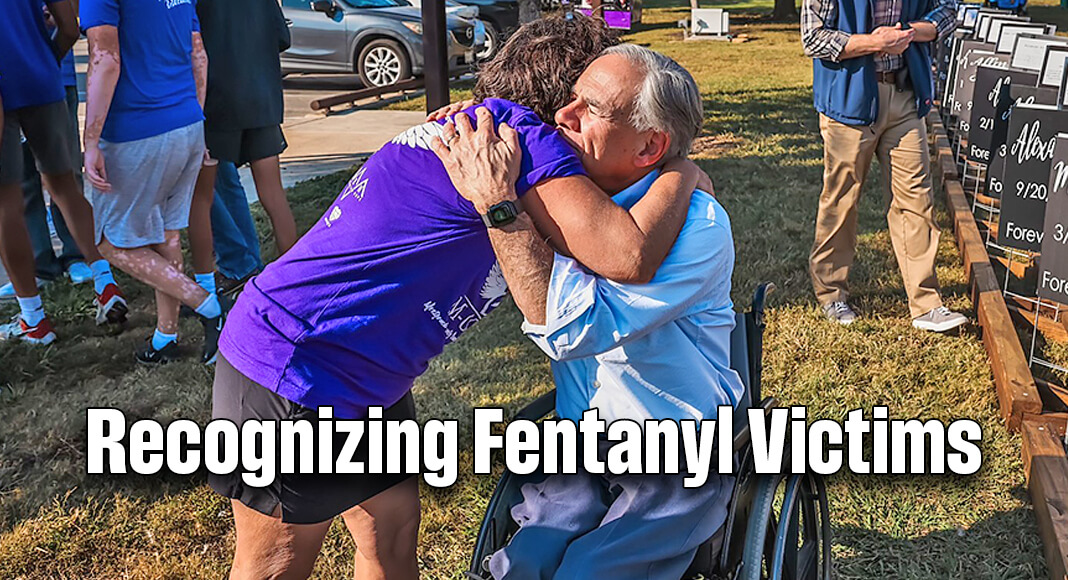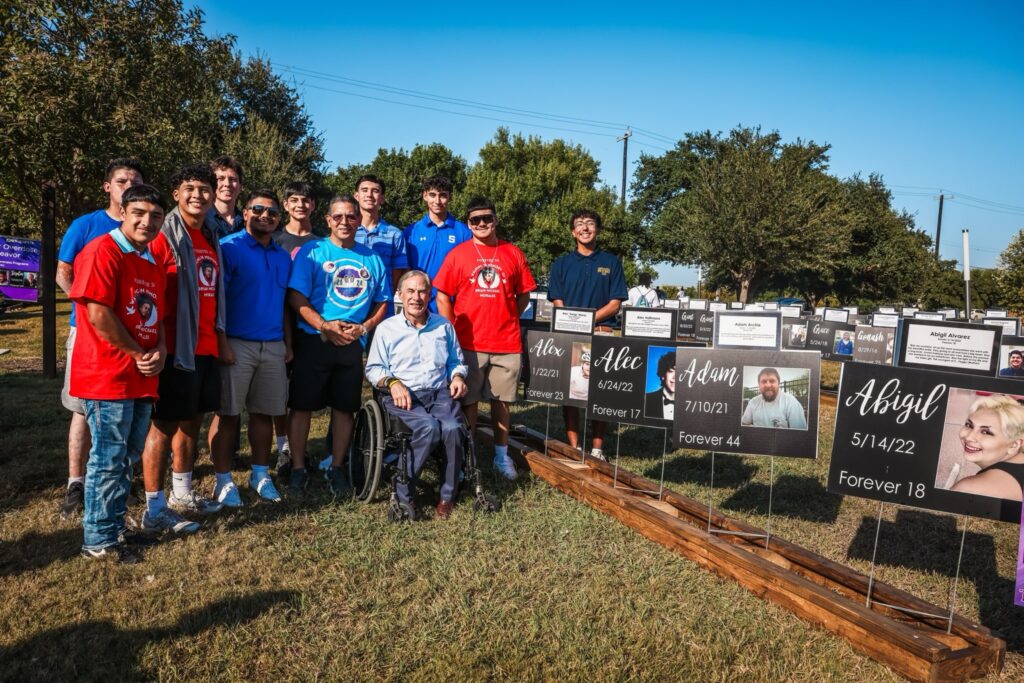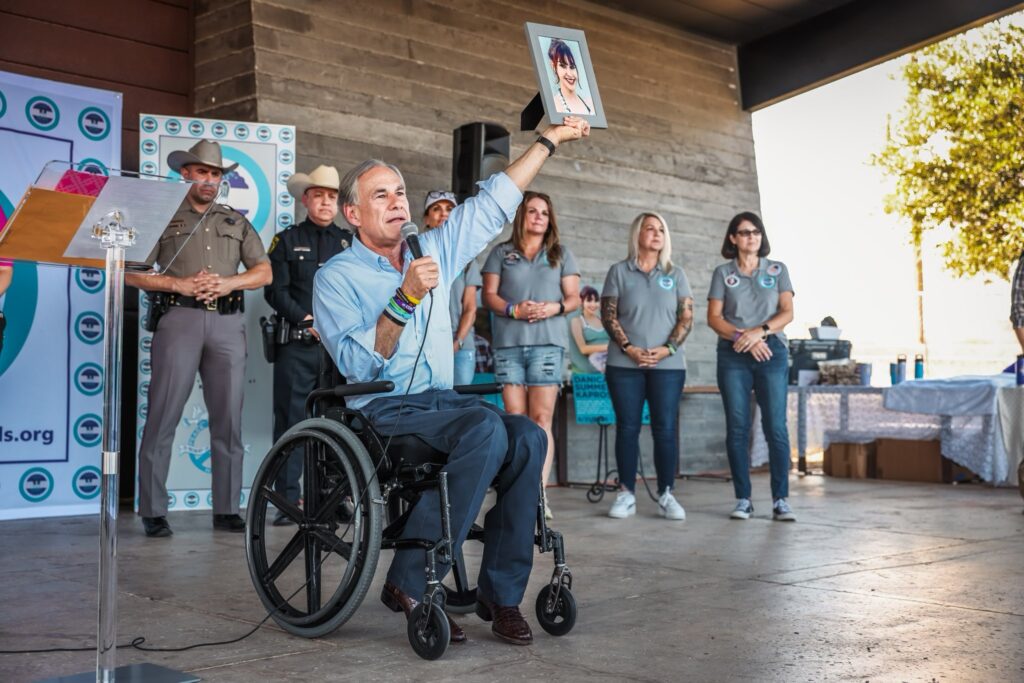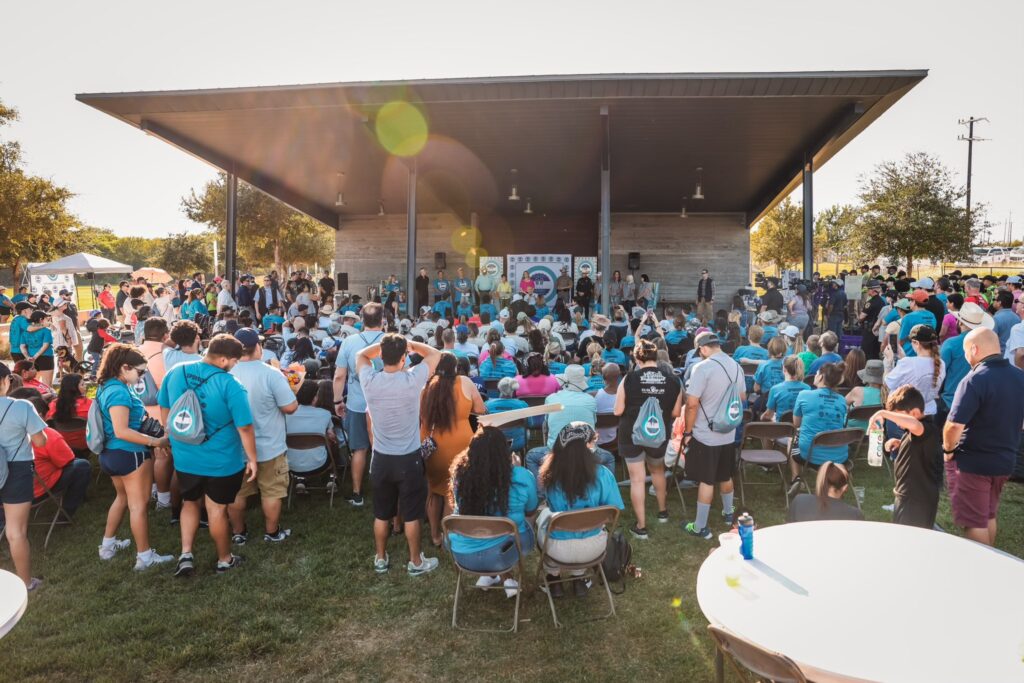
Texas Border Business
AUSTIN – Governor Greg Abbott recognized Texas families who have lost a loved one to fentanyl poisoning and raised awareness for the growing crisis plaguing the state and the nation at the 2nd Annual Soles Walking 4 Souls Fentanyl Awareness Walk in San Antonio.

“You are making a difference,” said Governor Abbott. “It takes extraordinary strength to not be defined by the challenges we face, but to determine our future by our response to those challenges. These Angel Moms and all of you are doing exactly that. You are saving the life of somebody today because you extended and expanded awareness to make sure they will not take a drug laced with fentanyl. This drug does not discriminate. It’s a nonpartisan issue because this is something that affects and endangers everybody’s life. In the Governor’s Office on my side table, there is a photo of Danica Kaprosy as a perpetual reminder to not just me, but to everyone who comes into my office that Danica will be remembered, and we will use every tool possible to get fentanyl off our streets.”

Speaking to a crowd of more than 300 families, fentanyl awareness advocates, community members, and other state and local officials, Governor Abbott highlighted Soles Walking 4 Soles ongoing commitment to educating Texans about the dangers of this clandestine killer. The Governor also thanked our state’s law enforcement community who are actively keeping fentanyl off the streets and the legislators who helped pass vital laws to defend Texas against this deadly drug. Additionally, the Governor mentioned the new ‘One Pill Kills’ awareness video with Texas college football head coaches that is being played across the state during Friday Night Lights for Fentanyl Poisoning Awareness Month to educate young students about the deadly consequences of fentanyl. Governor Abbott also proclaimed October 13 through October 19, 2024 as Fentanyl Poisoning Awareness Week.
Governor Abbott was joined at the fentanyl awareness walk by Soles Walking 4 Souls Directors Kathy Drago and Christina Villagrana, Representative John Lujan, Terrell County Sheriff Thaddeus Cleveland, Bexar County Judge Peter Sakai, Community Bible Church Pastor Ed Newton, KSAT-TV News Anchor Courtney Friedman, and other fentanyl awareness advocates.

Fentanyl is the No. 1 killer of Americans ages 18-45. Knowing how to recognize the signs of fentanyl poisoning and having open conversations about the dangers of fentanyl can help save a life. Texas’ comprehensive ‘One Pill Kills’ campaign is raising awareness about the deadly consequences of fentanyl and continues to educate Texans on how to prevent, recognize, and reverse fentanyl poisonings to protect a family member, friend, and neighbor.
Earlier this month, the Governor issued a proclamation declaring October 2024 as Fentanyl Poisoning Awareness Month to raise awareness and educate Texans about the dangers of fentanyl to save more lives.
Last year, Governor Abbott signed four pivotal laws to combat the growing national fentanyl crisis:
House Bill 6 (Goldman/Huffman) created a criminal offense of murder for supplying fentanyl that results in death, enhances the criminal penalty for the manufacturing or delivery of fentanyl, and requires deaths caused by fentanyl to be designated as fentanyl toxicity or fentanyl poisoning on a death certificate. Current law does not require such classification on a death certificate, with most fentanyl-related deaths currently classified as an overdose.
House Bill 3144 (Lujan/Campbell) established October as Fentanyl Poisoning Awareness Month to help increase awareness of the dangers of fentanyl.
House Bill 3908 (Wilson/Creighton), also known as Tucker’s Law, requires public schools each year to provide research-based instruction on fentanyl abuse prevention and drug poisoning awareness to students grades 6 through 12. The bill also requires the Governor to designate a Fentanyl Poisoning Awareness Week.
Senate Bill 867 (West/Rose) allows the distribution of opioid antagonists, including life-saving NARCAN, to Texas colleges and universities to prevent opioid poisonings.













